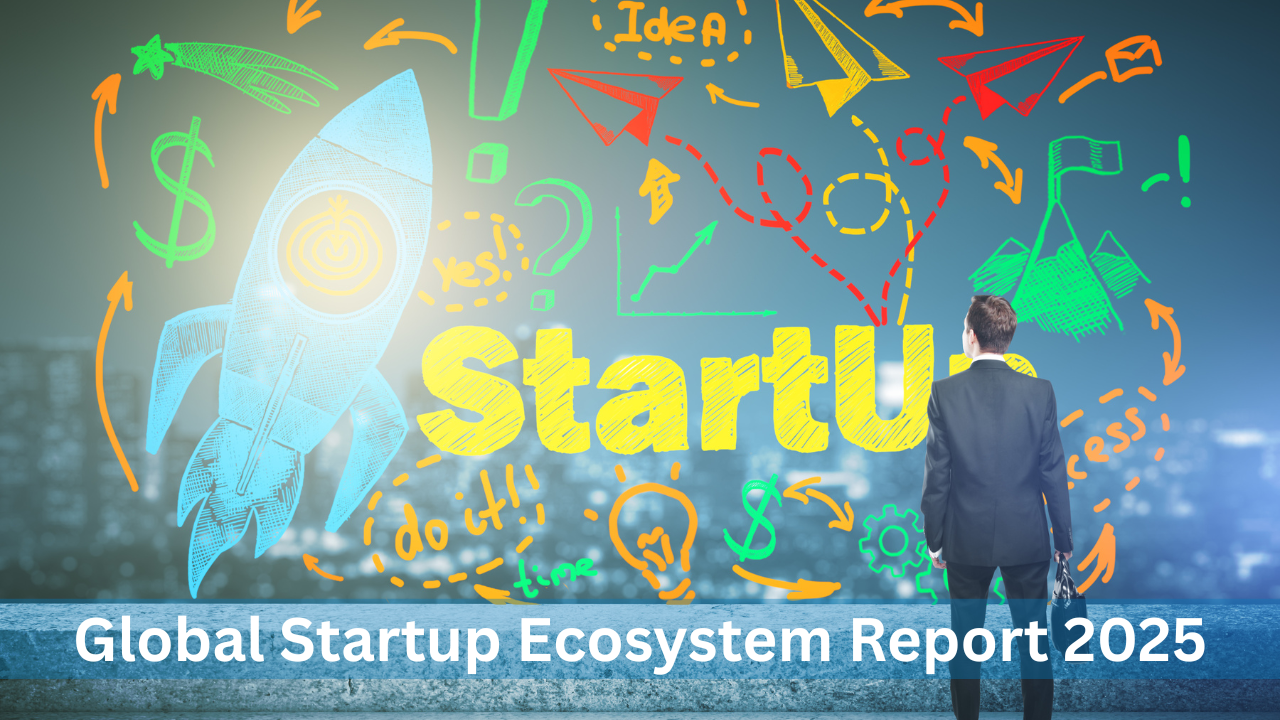Global Startup Ecosystem Report 2025: Key Takeaways for Indian Entrepreneurs
The Global Startup Ecosystem Report (GSER) 2025 has just been released, offering fresh insights into the state of startups across the world. Published by Startup Genome, this report is known for analysing over 350 global ecosystems and millions of startup data points. This year’s edition comes at a time when many founders, especially in India, are navigating a landscape shaped by funding shifts, technological innovation, and regional expansion.
In this article, we will explore the key highlights of the report and what it means for Indian entrepreneurs, founders, and those planning to enter the startup world. Whether you’re in a metro city or a tier-2 town, the findings from GSER 2025 can help guide your next move. For more updates and stories, you can visit Your Story.
Global Highlights: Mixed Signals for Startups
One of the most important takeaways from the report is the decline in the total value of global startup ecosystems. According to Startup Genome, the drop is due to a slowdown in major exits, including fewer IPOs and acquisitions. This suggests a cautious environment for investors and a longer path to profitability for startups.
However, despite this global slowdown, Asia’s startup hubs are gaining ground. Cities like Tokyo, Seoul, and Singapore are rising in rankings due to increased local investment and support from both government and private sectors. This trend indicates that while the global market may be cooling off, regional ecosystems are maturing and offering strong opportunities for new ventures.
India’s Startup Landscape in 2025
India has retained its position as the third-largest startup ecosystem in the world, following the United States and China. According to government data, over 159,000 startups are now officially recognised across the country, spanning 763 districts. A large percentage of these come from tier-2 and tier-3 cities, showing a shift in where innovation is happening.
This change reflects a broader movement towards decentralisation. Founders are no longer limited to Bengaluru, Delhi, or Mumbai. Cities like Jaipur, Kochi, and Indore are seeing growth thanks to local talent and supportive policies. Your Story has been actively covering such regional stories to encourage more young entrepreneurs to take the leap.
Sector-Wise Growth and Investment Trends
The Indian startup space continues to be broad in its focus. The report highlights that while Information Technology (22%) remains the leading sector, agriculture (18%) and healthcare (15%) are also seeing robust development. These sectors are expected to grow further, especially with increased interest in digital solutions and health tech post-pandemic.
In 2025, AI-driven startups are especially gaining traction, not just globally but in India as well. The report notes that 71% of early-stage venture funding globally has been going into AI-related startups. Indian founders working in generative AI, machine learning, and automation now have more opportunities to raise capital and scale globally.
To stay updated on emerging startup sectors and trends in India, entrepreneurs can follow resources on Your Story.
Government Support and Policy Push
India’s rise in the global rankings is not accidental. It is the result of continued government efforts to support startups through structured initiatives:
- Startup India: Offers tax benefits, ease of compliance, and access to funding.
- Fund of Funds for Startups (FFS): A ₹10,000 crore scheme managed by SIDBI to support innovation through venture capital.
- Credit Guarantee Scheme: Enables collateral-free loans up to ₹5 crore.
- Atal Innovation Mission and Incubators: Promote innovation and support early-stage startups with infrastructure and mentoring.
In addition to funding, there’s a growing push towards local languages and inclusivity in digital entrepreneurship. With a larger number of programs now available in regional languages and in smaller towns, the startup dream is becoming more accessible.
Your Story regularly shares updates about new schemes and how to make the most of them.
Opportunities for New and Aspiring Entrepreneurs
Even with the challenges mentioned in the GSER 2025 report, there are several silver linings for Indian entrepreneurs:
- Cost-effective operations: Running a business from smaller cities allows for reduced costs and longer runways.
- Untapped markets: Startups that solve local problems, whether in logistics, healthcare, or education, still have huge potential.
- Global recognition: With the Indian ecosystem becoming more visible on the global stage, international partnerships and funding are more accessible.
Founders who combine tech innovation with a strong understanding of Indian markets have the edge. They can build products that not only serve domestic users but are also export-ready.
Final Thoughts
The Global Startup Ecosystem Report 2025 is a reminder of how fast the startup world changes. While global trends suggest a cooling down of valuations and exits, the growth of regional hubs and new technologies opens up plenty of new opportunities.
For Indian entrepreneurs, the message is clear: keep innovating, stay lean, and build for the long term. The support from the government, increasing interest from global investors, and the rise of tier-2 innovation hubs all point toward a bright future for startups in India.
If you’re a founder, an investor, or someone curious about building something new, now is a good time to act — with the right information and community support, success is within reach.
Stay informed with more real stories, news, and guides on Your Story.






